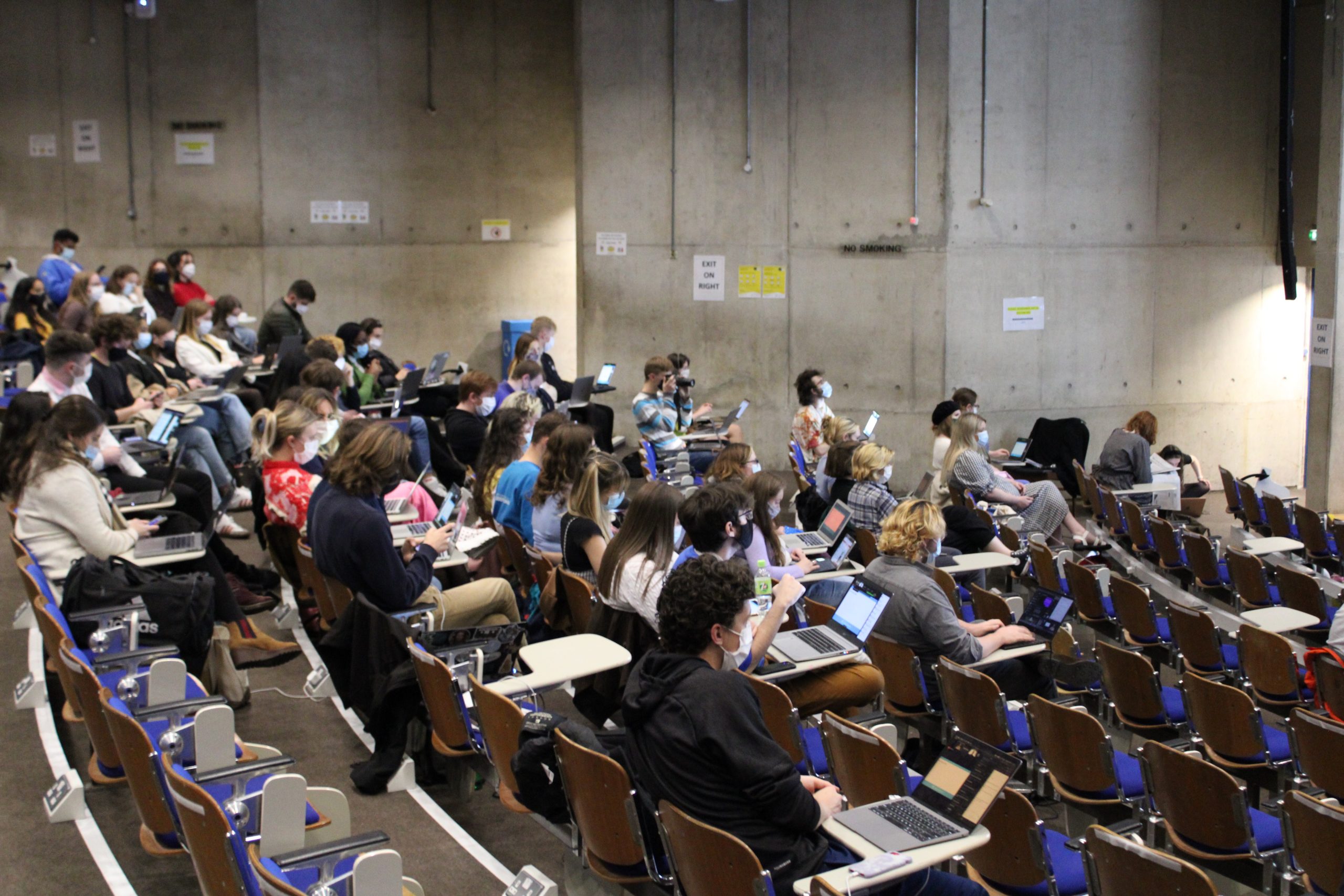Yesterday, members of Trinity College Dublin Students’ Union (TCDSU) discussed the lack of funding and long waiting lists for mental health supports available to students at College.
The discussion followed concerns raised by Senior Fresh Philosophy, Political Science, Economics and Sociology (PPES) Class Rep László Molnárfi about waiting lists for the Student Counselling Service (SCS).
Molnárfi highlighted that while “everyone who has experiences with college counselling, once they get it, really appreciates it”, waiting lists for these services are too long.
He called on TCDSU to put greater pressure College given that “it seems that they do not want to increase spending”.
“We have had enough of senior management telling us ‘It’s all gonna be okay’ when we have reports coming in day by day that it’s not.”
In response, TCDSU President Leah Keogh pointed to the efforts made by the SU to increase mental health services so far, noting that the Union “did actually call a stakeholders meeting” with the College to address the issue.
Keogh noted that the Union’s current priority is “to focus our attention on a national strategy”, working with the Union of Students’ in Ireland (USI) to implement a coordinated approach to the topic.
She informed Council that the SU is asking students to sign a book of grievances, voicing their concerns with College services, including “the medical services, the mental health service, and even the disability service”.
Medicine Convenor William Reynolds highlighted issues around the mental health of students on clinical placements.
Reynolds said that medical students are a cohort which is “often forgotten” in terms of mental health, and alluded to the death of a Trinity student last month, pointing out that the deceased “was a medicine student”.
He noted the “inadequate” support for students on clinical placement, saying they “have not been receiving the proper treatment”.
“We’ve had four suicides in the past four years of people on clinical placement”, Reynolds continued.
He pointed out that the workloads of such courses leave students with limited time to engage with the Students’ Union themselves: “We dont have alot of time to lobby for ourselves, to come to these meetings. A lot of issues have fallen through the cracks and I think it needs to be looked into for people on medical placement.”
Following this, SU Education Officer Bev Genockey addressed the topic from her own perspective as a Sabbatical Officer.
Genockey referred back to a meeting on 28 February in which she and fellow Sabbatical Officers spoke to the USI president about Trinity’s response to the events previously referred to by Reynolds.
While the Education Officer acknowledged that the tone of the meeting was positive, she said she was “really disappointed… to find out that USI didn’t have a dedicated mental health officer until after the death of one of our students”.
Genockey also referenced three college-wide emails sent out in the days following that event which listed the contact information of herself and Welfare and Equality Officer Sierra Müeller-Owens as the top resource for student support.
Genockey pointed out that while she “would never turn [her] back on a student” in need, she has not “received any formal training” in dealing with such heavy issues beyond the requisite training for Sabbatical Officers provided by USI.
Genockey highlighted the immense emotional burden placed on herself and Müeller-Owens by College’s handling of the situation.
“At no point did college contact me regarding listing me as the number one support for students experiencing distress.”
“At no point were we told that we would be utilised like that,” Genockey added.
“We haven’t been offered emergency counselling services ourselves.”
“Sierra [Müeller-Owens] and I really, really like our jobs and we want to do them well. Supporting students will always be a top priority; but if college is committed to supporting their students, they can’t rely on what are really just students themselves’’, Genockey concluded.
The Education Officer received a standing ovation from members of council following her address.
Other topics discussed at the town hall included a discussion about upskirting, a debate on the influence of Sabbatical officers in the Union, and a discussion of the Union’s stance on Irish neutrality.






